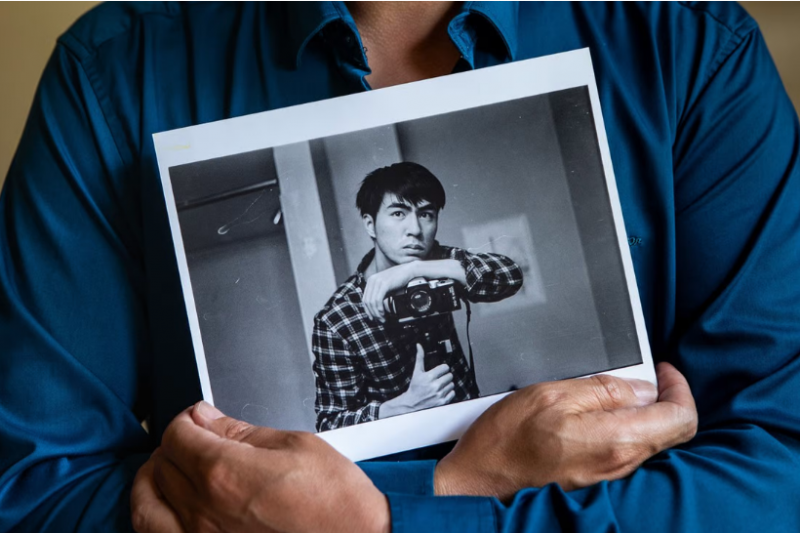
United States: The University of Southern California and two of its students are the target of a wrongful death trial brought by the family of a cinematographer who was killed over a student film there in April.
In a lawsuit filed Monday in Los Angeles County Superior Court, the parents of Peng Wang, a Chapman University student who rolled over in an off-road vehicle while traveling through Imperial Sand Dunes Recreation Area claimed that the school had approved the project and that they knew the team would use off-road vehicles and shoot in the desert.
The family is seeking unspecified damages. Requests for comment did not elicit a response from a representative.
USC officials had previously claimed that the students had acted illegally in the production of the short film Finale, claiming that they were allowed to use off-road vehicles and desert more than 370 kilometers (230 mi) from USC. I was unaware of the requirements of filming in a remote area. Campus.
"USC was not convicted for the tragic passing of Mr. Wang. In court, we will be open about our overall safety practices and track record," USC said in an emailed statement Tuesday.
Lawyers for USC students Biangliang Li and Ting Su, Felix Wu and Jason Liang, respectively, remained silent.
Chapman and the close-knit student community at USC, where memorial services were held for the talented Chinese cinematographer earlier this year, were both shocked by the 29-year-old's passing.
He died a few months after a promising cinematographer, Helena Hutchins, was accidentally shot dead by actor Alec Baldwin during rehearsal on the set of the film Rust, serving as another reminder of the risks associated with filming .
According to the family's lawsuit, security "must trump everything on student film projects made in fulfillment of USC class requirements."
"USC has an obligation to reunite family members with the people who work in its films.
USC is responsible for its negligence in failing to maintain control of the finale student film project and ensure everyone's safety. The plaintiffs are suing to recover damages for [Wang's] death as a result of that negligence.
Peng Wang's father Hulun Wang visited Southern California this summer for memorial services and to learn more about his son's accident.
Just weeks before the conclusion of his Master of Fine Arts course, Wang, also known as Aaron on campus, passed away. He posthumously received a degree from Chapman University in Orange County.
According to a death certificate, his remains were eventually buried in Chengdu, the provincial capital of Sichuan in southwest China. An off-road accident was cited as the cause of death, specifically a blunt neck trauma.
According to the lawsuit, Wang had joined USC students to help him complete one of three films being made as part of a directing class at the film school. A man experiences hallucinations and dies in the desert in the short film finale, which was scheduled to be shot at Glamis Dunes east of Broly, California.
According to the complaint, on the first day of filming, Wang and the crew were crossing sand dunes on April 15, when the accident happened around 1 p.m.
According to the lawsuit, driver Lee lost control of the car, which rolled down a mound. According to a police report, Wang, who was sitting in the rear of the car, was partially ejected during the collision despite wearing a helmet and not strapped to his seat.
A knowledgeable driver, who is familiar with the dunes or who has received proper training, may not have made this obvious mistake, the family claimed in a court document.
According to the lawsuit, Su was unable to put on Wang's helmet on his own, due to a lack of familiarity with the equipment needed for off-road travel. The family claimed in the lawsuit that Su and Lee should have been "on high alert" given [Wang's] proper handling of [the off-road vehicle] and ignorance of safety protocols.
USC stated at the time of the accident that student films using all-terrain vehicles or shooting more than 80 kilometers (50 mi) from campus required specific approval, but none had been requested or received. .
However, the family pointed out in their lawsuit that the USC Film School had authorized "student certification" for the film submitted on April 5 and assigned it a production number.
The cost of renting an off-road vehicle, housing, and a recreational vehicle, as well as the fact that the film was being shot in the desert, were all listed in the film's budget. Wang was identified as the photographer.
US and Canadian warships transit the Taiwan Strait For the second time this year
China remains a formidable challenge: Navy chief
There is a push to punish China for its abuses outside of the UN